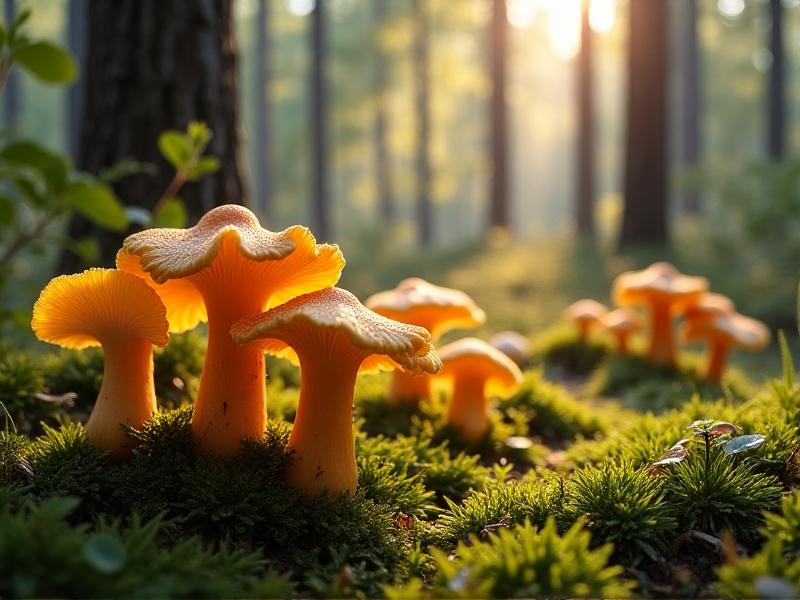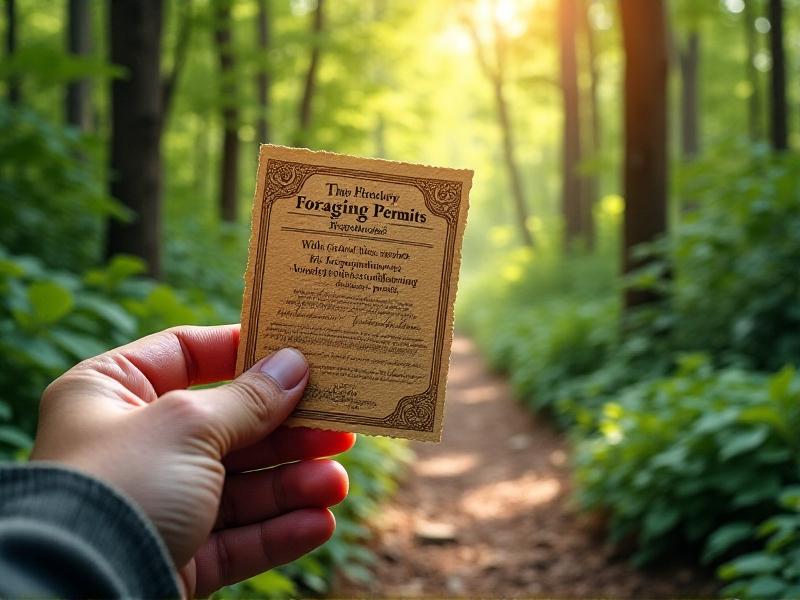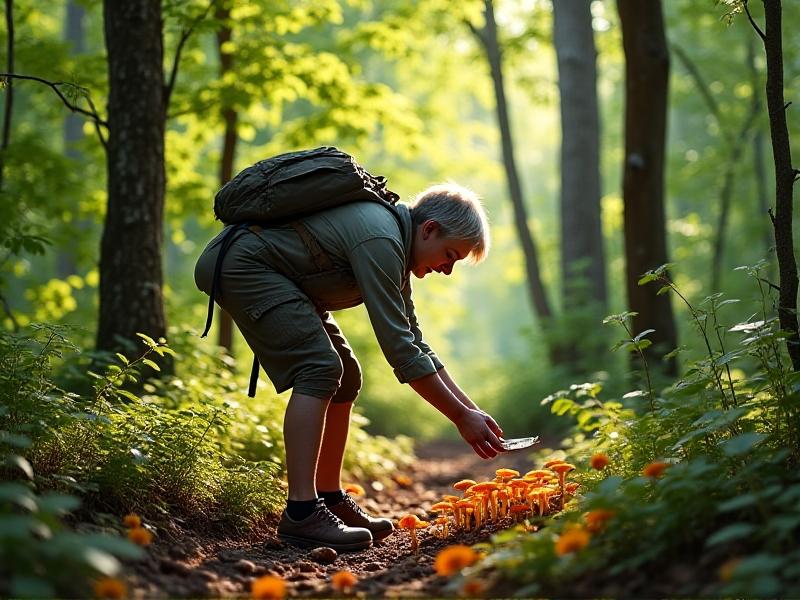State-Specific Regulations on Selling Foraged Mushrooms to Restaurants
Introduction to Foraged Mushrooms and Their Culinary Appeal
Foraged mushrooms have long been a staple in gourmet cuisine, prized for their unique flavors, textures, and the sense of adventure they bring to the table. From the earthy porcini to the delicate chanterelle, these fungi are a treasure trove for chefs and food enthusiasts alike. However, the process of selling foraged mushrooms to restaurants is not as simple as picking them from the wild and delivering them to the kitchen. State-specific regulations play a crucial role in this process, ensuring safety, sustainability, and legality. This article delves into the complexities of these regulations, providing a comprehensive guide for foragers and restaurateurs alike.

Understanding the Basics of Foraging Regulations
Before venturing into the woods with a basket in hand, it's essential to understand the foundational regulations that govern foraging. These rules vary significantly from state to state, but they generally cover aspects such as permits, species restrictions, and harvesting limits. For example, some states require foragers to obtain a permit before collecting wild mushrooms, while others may restrict the types of mushrooms that can be harvested. Additionally, there are often limits on the quantity of mushrooms that can be collected to prevent overharvesting and ensure sustainability. Understanding these basics is the first step toward legally and ethically selling foraged mushrooms to restaurants.

State-Specific Permits and Licensing Requirements
One of the most critical aspects of selling foraged mushrooms is obtaining the necessary permits and licenses. Each state has its own set of requirements, which can range from simple foraging permits to more complex commercial licenses. For instance, in California, foragers must obtain a special permit to sell wild mushrooms, and the mushrooms must be inspected by a certified expert before they can be sold. In contrast, states like Oregon have more lenient regulations, allowing foragers to sell directly to restaurants without extensive permits. It's crucial to research and comply with the specific requirements of your state to avoid legal issues and ensure the safety of the mushrooms being sold.

Health and Safety Standards for Foraged Mushrooms
Health and safety are paramount when it comes to selling foraged mushrooms. Restaurants and consumers alike rely on foragers to provide safe, edible fungi. This means that foragers must be well-versed in identifying edible species and avoiding toxic ones. Additionally, many states have specific health and safety standards that must be met, such as proper cleaning, storage, and transportation practices. For example, in Washington State, foragers are required to follow strict guidelines to prevent contamination and ensure the mushrooms are safe for consumption. Adhering to these standards not only protects public health but also builds trust with restaurant clients.
Sustainability and Ethical Foraging Practices
Sustainability is a growing concern in the foraging community, as overharvesting can lead to the depletion of wild mushroom populations. Ethical foraging practices, such as only harvesting mature mushrooms and leaving some behind to spore, are essential for maintaining the health of forest ecosystems. Many states have regulations in place to promote sustainability, such as limits on the number of mushrooms that can be harvested or restrictions on harvesting in protected areas. For example, in Michigan, foragers are encouraged to follow the "leave no trace" principle, ensuring that their activities do not harm the environment. By adopting these practices, foragers can contribute to the long-term viability of their trade.
Navigating the Restaurant Market for Foraged Mushrooms
Once the legal and ethical considerations are addressed, the next step is navigating the restaurant market. Building relationships with chefs and restaurateurs is key to successfully selling foraged mushrooms. This involves understanding the specific needs and preferences of each restaurant, as well as being able to reliably supply high-quality mushrooms. For example, a high-end restaurant may prioritize rare and exotic species, while a more casual eatery might focus on more common varieties. Additionally, foragers must be prepared to meet the demands of the restaurant industry, such as providing consistent quantities and adhering to delivery schedules. By understanding the market and building strong relationships, foragers can establish a successful business selling to restaurants.
Case Studies: Successful Forager-Restaurant Partnerships
Examining successful forager-restaurant partnerships can provide valuable insights for those looking to enter the market. For example, in Vermont, a forager has established a thriving business by supplying local restaurants with a variety of wild mushrooms, from morels to black trumpets. This forager has built a reputation for reliability and quality, leading to long-term partnerships with several high-profile restaurants. Similarly, in Colorado, a forager has partnered with a farm-to-table restaurant to create a seasonal menu featuring foraged mushrooms, attracting food enthusiasts from across the state. These case studies highlight the importance of quality, reliability, and strong relationships in building a successful forager-restaurant partnership.
Challenges and Solutions in Selling Foraged Mushrooms
While selling foraged mushrooms to restaurants can be a rewarding venture, it is not without its challenges. One of the primary challenges is the variability in mushroom availability, which can be affected by factors such as weather and seasonality. For example, a dry season may result in a lower yield of mushrooms, making it difficult to meet restaurant demand. To address this, foragers can diversify their offerings by including cultivated mushrooms or other foraged products. Another challenge is the competition from larger suppliers, who may offer lower prices or more consistent quantities. To compete, foragers can emphasize the unique qualities of their wild mushrooms, such as their flavor and rarity, and build strong relationships with their clients. By addressing these challenges creatively, foragers can build a sustainable and profitable business.
Future Trends in the Foraged Mushroom Industry
The foraged mushroom industry is evolving, with new trends and opportunities emerging. One significant trend is the growing interest in local and sustainable food sources, which has led to increased demand for foraged mushrooms. Additionally, there is a rising interest in the health benefits of mushrooms, such as their immune-boosting properties, which is driving demand in both the culinary and wellness markets. Another trend is the use of technology to aid in foraging, such as apps that help identify edible species or track harvesting locations. As the industry continues to grow, foragers who stay ahead of these trends and adapt to changing market demands will be well-positioned for success.
Final Thoughts on Navigating State-Specific Regulations
Navigating state-specific regulations on selling foraged mushrooms to restaurants can be complex, but with the right knowledge and approach, it is entirely achievable. By understanding the legal requirements, adhering to health and safety standards, and practicing sustainable foraging, foragers can build a successful and ethical business. Building strong relationships with restaurants and staying ahead of industry trends will further enhance their prospects. As the demand for unique and sustainable food sources continues to grow, foraged mushrooms offer a valuable opportunity for those willing to invest the time and effort into this rewarding venture.







